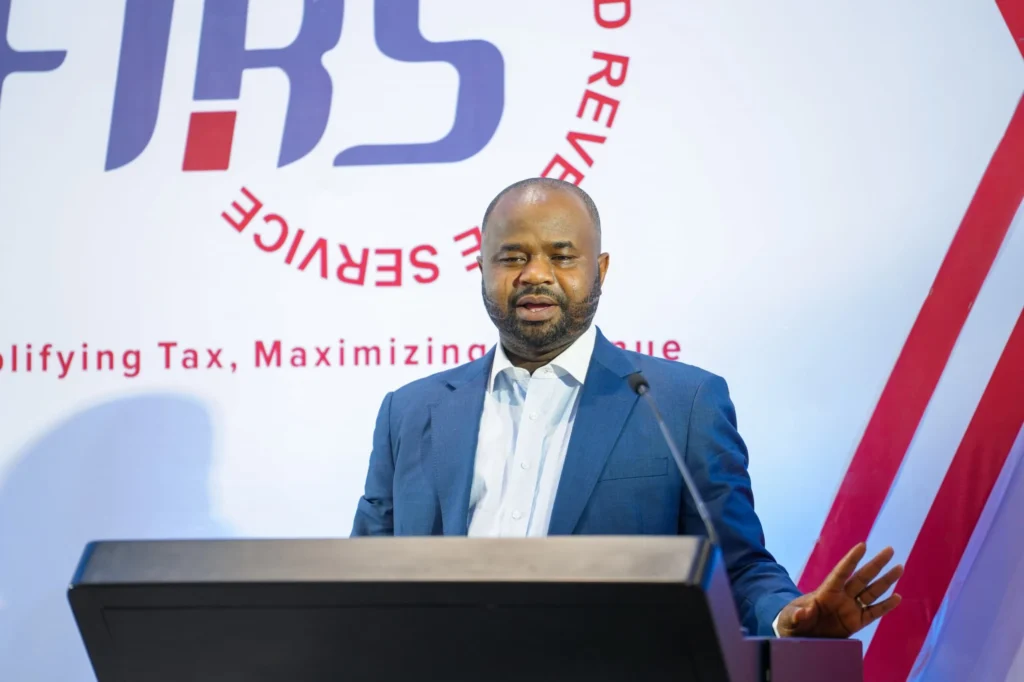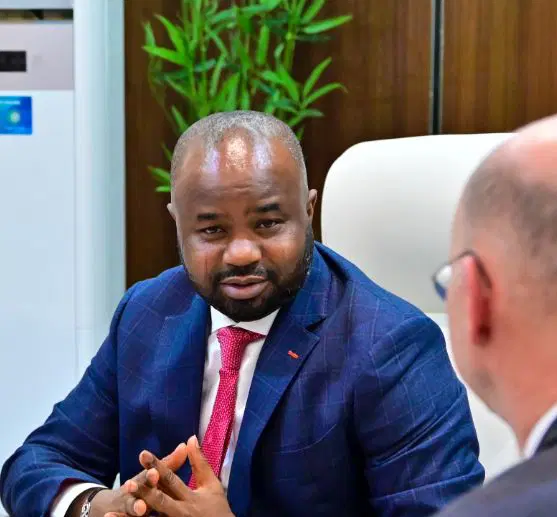In Abuja, the Executive Chairman of the Federal Inland Revenue Service (FIRS), Dr. Zacch Adedeji, delivered an impassioned address at the Service’s debut Research Day, underscoring the intricate economic challenges facing the nation and the pressing need for policy reforms anchored in credible data and pioneering technological innovations. He emphasised that in the absence of rigorous research, governance becomes guesswork—an approach that Nigeria can ill afford.
Held for the first time in FIRS history, Research Day was convened to institutionalise research-driven decision-making as a foundational pillar of tax administration. The gathering drew together an eclectic mix of internal stakeholders, scholars, policymakers, and tax experts, who collectively witnessed the launch of instrumental “knowledge products” crafted to elevate Nigeria’s tax architecture and economic governance.
Table of Contents

“Research lights the path ahead”
Reflecting on the significance of the event, Dr. Adedeji affirmed, “Without research, we risk working in the dark; with it, we shine a light on the path ahead.” His words resonate as a clarion call to embed research at the heart of policy-making and execution. To this end, he admonished all departments within FIRS to integrate research outcomes into their operational strategy, while also fostering symbiotic partnerships with academic institutions and development agencies to meld theory with practice.
Three Strategic Launches: Setting New Standards for Tax Research and Analysis
Research Day unveiled three transformative initiatives:
- FIRS Research Policy Document – A comprehensive framework emphasising ethics, methodological rigour, and transparency, set to professionalise research across the Service.
- Tax Revenue Statistical Bulletin – A rich, archival publication charting Nigeria’s tax trends from 1970 through 2022, designed to serve as a cornerstone for economic policy analysis.
- FIRS Journal of Tax Studies (FJTS) Vol. 4, alongside a digital platform (www.fjts.online) – This peer-reviewed outlet and its accessible online interface expand the reach of scholarly and professional insights to an even broader audience.
These scholarly tools mark a paradigm shift in how data and policy intersect at FIRS. As Halima M. Shehu, Director of Research and Statistics, aptly put it, “Research and reliable data are not optional—they are essential.” She further characterised Research Day not as a commemoration, but as “a new beginning.”

Building a Smarter, Accountable Tax System
Collins Omokaro, Special Adviser on Communications and Advocacy to the Executive Chairman, captured the broader significance: “As the FIRS charts a bold path forward, the 2025 Research Day stands as a defining moment—anchored in data, powered by inquiry, and committed to building a smarter, more accountable, and more innovative tax administration system for Nigeria.”
Contextualising the Complexity
Dr. Adedeji’s clarion call comes at a time when Nigeria’s economic landscape is characterised by multifaceted challenges—ranging from fluctuating global oil prices and inflation to systemic inefficiencies, tax leakages, and poverty. A turnaround demands solutions that are not only well-intentioned but are also evidence-based, data-driven, and technologically grounded.
Through his stewardship, FIRS appears set on pivoting from traditional tax administration toward a more forward-thinking model—one where solid research, methodological integrity, and cutting-edge technology coalesce to form the backbone of governance.
Why This Matters: The Real-World Impact
- Strengthening Public Trust
Embedding transparency and rigour into research methodologies and data dissemination fosters trust among citizens and stakeholders. As FIRS lifts the veil on tax trends and standards, scepticism gives way to confidence. - Precision in Policy Formulation
A rich database—like the Tax Revenue Statistical Bulletin—offers policy-makers robust insights into historical tax performance, enabling more precise projections and tailored interventions. - Collaboration Between Academia and Governance
The launch of FJTS encourages scholars and practitioners to converge, ensuring policies are inspired by empirical research while addressing practical challenges. The digital platform broadens access, encouraging deeper engagement. - Institutional Culture Shift
The new Research Policy Document represents a durable change—signalling that integrity and inquiry are core to how FIRS will operate henceforth. - Long-Term Economic Prosperity
Systematic, research-informed policy design reduces guesswork, enhances resource allocation, and aligns taxation with development goals, all of which pave the way for sustainable prosperity.
Dr. Adedeji’s Pitch: From Abuja’s Halls to Nigeria’s Economic Heartbeat
As someone who has observed many policy dialogues in Abuja’s corridors, today felt different—charged with clarity, purpose, and resolve. Dr. Adedeji’s pitch was neither academic nor abstruse; it spoke directly to Nigeria’s future. It was a rare and welcome blend of visionary ambition and pragmatic realism—a reminder that even in the face of daunting structural hurdles, leadership grounded in data and innovation can chart a brighter course.

Looking Ahead
For this approach to yield dividends, sustained commitment is essential. The Research Policy must translate into continuous learning, the Bulletin must be regularly updated, and the Journal must become a beacon of interdisciplinary discourse. Moreover, the success of such initiatives depends on institutional buy-in across all levels—without which innovation risks being dampened by entrenched inertia.
Conclusion
As Nigeria grapples with economic volatility and the pressing need for revitalisation, the message from FIRS—led by Dr. Zacch Adedeji—is both powerful and promising: Data is not a luxury; it’s the bedrock of policy efficacy. Research is not optional; it’s indispensable. And innovation is not elective; it is existential for Nigeria’s prosperity.
Research Day was more than a one-off event. It symbolised a turning point—an intentional shift toward governance that is informed, inclusive, and intelligent. If that ethos endures, Nigeria’s path may indeed become a little clearer—even amid complexity.
Join Our Social Media Channels:
WhatsApp: NaijaEyes
Facebook: NaijaEyes
Twitter: NaijaEyes
Instagram: NaijaEyes
TikTok: NaijaEyes








































